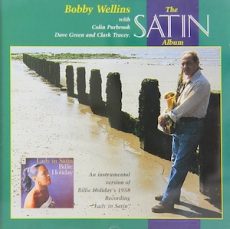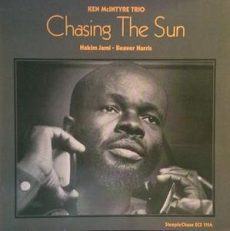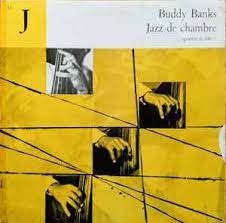
Daily Dose Of Jazz…
Miroslav Ladislav Vitouš was born on December 6, 1947 in Prague, Czechoslovakia. He began the violin at age six, switching to piano after about three years, and then to bass at age fourteen. As a young man in Europe, he was a competitive swimmer but one of his early music groups was the Junior Trio with his brother Alan on drums and Jan Hammer on keyboards.
He studied music at the Prague Conservatory and won a music contest in Vienna, Austria in 1966 that gave him a scholarship to the Berklee College of Music in Boston, Massachusetts which he attended one year before going to Chicago, Illinois to play with trombonist Bob Brookmeyer and flugelhorn pioneer Clark Terry.
When Miles Davis saw him playing in Chicago with Brookmeyerin 1967 and invited him to join his group playing at the Village Gate in New York City. It was with Davis that Vitouš first encountered saxophonist Wayne Shorter, keyboardist Herbie Hancock and the Davis-centric scene that was transforming mainstream jazz from late hard bop into what would be known as jazz fusion.
1968 saw the first of Vitouš’s partnerships with Roy Ayers, and Herbie Mann, Bennie Maupin, and Stanley Cowell. The following year, Vitouš recorded his debut album as a bandleader, Infinite Search for Mann’s Embryo label. He recorded with Larry Coryell’s Spaces with John McLaughlin, Corea, and drummer Billy Cobham.
In 1969 he recorded with Shorter, McLaughlin, Jack DeJohnette, Corea, and Brazilian percussionist Airto Moreira. The following year he continued as bandleader as he recorded Purple for Columbia, supported by McLaughlin, Cobham and the keyboardist Joe Zawinul. Then Shorter, Zawinul, and Vitouš formed the founding core of the jazz group Weather Report. Creative differences between him and Zawinul facilitated his departure from the group. Leaving the group he moved on to an illustrious career leading his own band and winning respect as a composer.
Double bassist, bass guitarist and composer Miroslav Vitouš continues his performing, recording and composing to this day.
More Posts: bandleader,bass guitar,composer,double bass,history,instrumental,jazz,music

Daily Dose Of Jazz…
Colin Thomas Purbrook was born February 26, 1936 in Seaford, East Sussex, England and learned piano from the age of six from his father, who was also a professional pianist. As an eleven year old, in 1947 he won three Challenge Cups at the Brighton Music Festival. He went on to study music at the Fitzwilliam College, Cambridge. As well as playing piano, he also played the trombone with the Cambridge University Jazz Band.
Leaving Cambridge in 1957 he joined Sandy Brown’s quintet on double bass for a six-month period at the popular Oxford Street 100 Club. He played piano for three years with Al Fairweather’s All Stars, and also played with Kenny Ball, both as a pianist, trumpeter and double bassist. In the early 1960s he worked with Kenny Baker, Ian Carr, Tony Coe, Bert Courtley, Jimmy Deuchar, Wally Fawkes, Alan Ganley, Derek Hogg, Dudley Moore, John Picard, Don Rendell, Ronnie Ross, and Ronnie Scott.
In 1961 he worked alongside composer and musician Charles Mingus on the music score for the film All Night Long which was eventually released in 1962. Later in the decade he continued working with Brown and Coe, as well as with Brian Lemon, Humphrey Lyttelton, and Phil Seamen on drums. He played piano for the BBC 2’s music programme Jazz 625 with Dakota Staton and the Keith Christie All Stars respectively and was a member of Benny Goodman’s sextet when the clarinetist recorded a special gala performance for BBC2 in 1964.
He often played with drummer Phil Seamen, joining his trio during the late 1960s and early ’70s. Colin was a frequent sideman for Americans touring the UK, and worked over the course of his career with Chet Baker, Ruby Braff, Benny Carter, Doc Cheatham, Eddie Lockjaw Davis, Art Farmer, Dexter Gordon, Barney Kessel, Howard McGhee, James Moody, Annie Ross, Zoot Sims, and Buddy Tate. He was involved with the production of a number of stage plays from the 1970s through the 1990s. He led trios and quartets into the 1990s, took up a couple of residencies as a solo pianist, and continued to tour and appear on radio and television and, despite the fact that he began to suffer from rheumatoid arthritis in 1995.
Pianist, double bassist, trumpeter and songwriter Colin Purbrook, who also led his own smaller and larger ensembles, died in London, England of cancer on February 5, 1999.
More Posts: double bass,history,instrumental,jazz,music,piano,songwriter,trumpet

Daily Dose Of Jazz…
Makanda Ken McIntyre was born Kenneth Arthur McIntyreon on September 7, 1931 in Boston, Massachusetts to a father whoplayed mandolin. He started his musical life on the bugle when he was eight years old, followed by piano. In his teens he discovered the music of Charlie Parker and began playing saxophone at nineteen, then clarinet and flute two years later. Serving in the Army in 1953, for two years he played saxophone and piano in Japan.
Following his discharge Ken attended the Boston Conservatory where he studied with Gigi Gryce, Charlie Mariano, and Andy McGhee. In 1958 he received a degree in flute and composition with a master’s degree the next year in composition. He also received a doctorate (Ed.D.) in curriculum design from the University of Massachusetts Amherst in 1975.
1960 saw McIntyre recording as a leader with Eric Dolphy. The following year and for the next six he taught music in public schools. He took oboe lessons in New York before playing with Bill Dixon, Jaki Byard, and the Jazz Composer’s Orchestra. He went on to spend three years with pianist Cecil Taylor. During the 1970s he recorded with Nat Adderley and Beaver Harris and in the 1980s with Craig Harris and Charlie Haden.
In 1971, he founded the first African American Music program in the United States at the State University of New York College at Old Westbury, teaching for 24 years. He also taught at Wesleyan University, Smith College, Central State University, Fordham University, and The New School for Jazz and Contemporary Music.
In the early 1990s, while performing in Zimbabwe, a stranger handed him a piece of paper with the word “Makanda” written on it, which translates to many skins in the Ndebele language and many heads in Shona. He changed his name to Makanda Ken McIntyre. At the age of 69 on June 13, 2001 he transitioned from a heart attack in New York City.
More Posts: bass clarinet,bassoon,double bass,drums,flute,history,instrumental,jazz,music,oboe,piano,saxophone

The Quarantined Jazz Voyager
This week the Jazz Voyager is choosing from the library of rare gems seldom heard on this side of the pond. Thanks to the internet, as you listen to the twenty-nine minutes of the album, remember to keep vigilant about the safety of your health and others. On the turntable is the hard bop Jazz De Chambre, a 1954 recording by double bassist Buddy Banks.
Buddy Banks, originally a saxophonist who switched to bass, had arrived in Europe after World War II. On this session he is accompanied by drummer Roy Haynes, pianist Bob Dorough, and guitarist Jimmy Gourley. The leader takes the spotlight in a subtle take of Yesterdays, though a strange clicking mars an otherwise swinging “I Love You.” Banks’ group also offers serviceable interpretations of modern pieces like Gerry Mulligan’s Line for Lyons and Milt Jackson’s Bag’s Groove.
The album was recorded at Geneix Studio in Paris, France and was produced by Frank Ténot. The liner notes were provided by Alain Tercinet with English translation by Martin Davies.
Tracks | 32:56- A Night In Tunisia (Dizzy Gillespie / Frank Paparelli) ~ 4:26
- Almost Like Being In Love (lan Jay Lerner / Frederick Loewe) ~ 3:19
- Bag’s Groove (Milt Jackson) ~ 3:47
- Yesterdays (Otto Harbach / Jerome Kern) ~ 3:29
- I Love You (Cole Porter) ~ 5:58
- Line For Lyons (Gerry Mulligan) ~ 3:46
- You Go To My Head (J. Fred Coots / Haven Gillespie) ~ 4:29
- Buddy Banks Blues (Buddy Banks) ~ 3:27
- Bob Dorough ~ piano
- Buddy Banks ~ double bass
- Jimmy Gourley ~ guitar
- Roy Haynes ~ drums
More Posts: adventure,album,club,double bass,genius,jazz,museum,music,preserving,restaurant,travel




